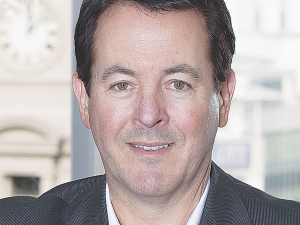The company, the world’s largest King salmon aquaculture producer, has a yield of 8000 tonnes a year from nine farms in the Marlborough Sounds.But the company is feeling the effects of climate change, notably rising water temperatures.
“This is an incredibly exciting opportunity for our company, our region and the aquaculture industry,” says chief executive Grant Rosewarne.
“We’ve named our first open ocean farming project Blue Endeavour to signify our future focused strategy to harness the ocean’s potential in a sustainable way. The pens on these farms will be so spacious that we’re calling them sea ranges,” he told Rural News.
“Our changing climate and the need for low carbon, high nutrition food are truly global issues.
“We see aquaculture as a force for good in addressing these challenges. We are investing in... the future of sustainable food production.”
Research into temperature, wave heights, currents and other key environmental factors by the company and independent scientists over the last year identified a suitable 1792ha site about 7km north of Cape Lambert.
The company in early applied to Marlborough District Council for a 35 year resource consent. It intends to commission an initial farm with a potential production of 4000t – about twice that of its largest existing farms.
The first salmon stocks would be introduced from the end of 2020 for harvest 12-18 months later. And the consent would allow for a second farm nearby, doubling capacity to about 8000t per 18 month cycle.
The venture would need suitable vessels and pen infrastructure based on international technology, and a trained workforce. The initial cost would be $25-$30 million.
NZKS chief operating officer Alan Cook, who joined the company this year with 20 years aquaculture experience, says the open ocean will be ideal for the King salmon in the long term.
“Climate change is real and we have felt its impact in the Marlborough Sounds over the last couple of summers. This decision is crucial to our long term sustainability efforts.
“It will be a major challenge to farm in the open ocean because of more extreme conditions than in the Sounds, but we’ve chosen the best site possible.”
The company says that with at least 400 million ha of ocean space in NZ’s exclusive economic zone (EEZ) – the world’s fourth largest – farming a tiny proportion of the ocean could provide a significant future source of healthy, sustainable protein.
Cawthron Institute aquaculture scientist Kevin Heasman says open ocean aquaculture has massive potential.
“We’ve got a huge marine estate, no close neighbours, and by combining appropriate environmental and site planning with smart farming systems, we can sustainably realise the value of our open ocean resources.”
NZKS says it has consulted a wide range of groups, including iwi, fishing companies, Department of Conservation, Forest and Bird, the Environmental Defence Society and local community groups.
“We anticipate a favourable reaction from our community, as open ocean farming allows the development of positive economic activity away from communities and recreational activities,” Rosewarne says.
“We hope that successful commercialisation of our open ocean farming vision may decrease our reliance on the inshore farming model, as part of our ongoing efforts to farm in the most suitable conditions available.”

















